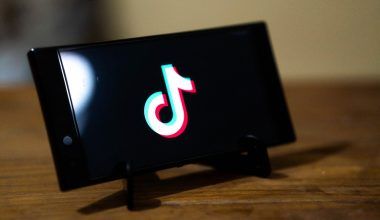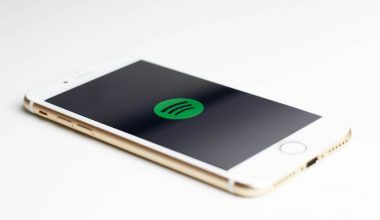As a musician, one of the most exciting aspects of creating music is sharing it with the world and seeing it resonate with fans. But let’s not forget the most rewarding part—getting paid for your hard work and talent. With platforms like iTunes, monetizing your music has never been easier or more accessible. In this blog, we’ll walk you through how to monetize your music on iTunes, ensuring you can turn your passion into profit. By the end of this guide, you’ll have a clear understanding of the steps, tips, and strategies to start earning.
What Is iTunes and Why Is It a Great Platform for Artists?
iTunes is one of the most popular platforms for purchasing and streaming music. With millions of users globally, it offers artists an incredible opportunity to showcase their work. The platform allows fans to buy music directly, which means you get a direct cut from each sale. Unlike streaming services that pay per play, iTunes lets you earn a significant amount when fans purchase your singles or albums outright.
Setting Up Your Music for iTunes
To start earning, you first need to set up your music on iTunes. Here’s how you can do it:
1. Choose a Distributor
You can’t upload music directly to iTunes as an independent artist. Instead, you’ll need to work with a distributor like TuneCore, DistroKid, or CD Baby. These platforms act as a bridge, ensuring your music reaches iTunes and other platforms seamlessly.
2. Prepare Your Tracks
Make sure your music is in a high-quality format. Most distributors require your files to be in WAV or FLAC format for the best audio quality.
3. Set Metadata
Metadata includes your song title, artist name, album name, and artwork. This information is crucial because it’s what fans see when they search for your music on iTunes.
4. Submit and Wait for Approval
After uploading your tracks through a distributor, your music will go through a review process. Once approved, it’ll be live on iTunes, ready for purchase.
Pricing Your Music Strategically
One of the best things about monetizing your music on iTunes is that you have control over pricing. Here are some tips:
- Singles vs. Albums: Price your singles affordably, but ensure your albums provide better value for money. For example, if your single costs $1.29, price your album around $9.99 to encourage album purchases.
- Limited-Time Discounts: Occasionally offer discounts to boost sales. Promotions can help you attract new fans and encourage existing ones to buy more.
- Test Different Prices: Experiment with pricing to see what works best for your audience.
Promoting Your Music for Maximum Sales
Getting your music on iTunes is just the first step. To truly monetize your music, you need to market it effectively. Here’s how:
Platforms like Instagram, Facebook, and Twitter are perfect for connecting with fans. Share snippets of your tracks, behind-the-scenes videos, and direct links to your iTunes page.
2. Collaborate with Influencers
Partner with influencers or other artists to reach a broader audience. A well-placed shoutout or collaboration can significantly boost your sales.
3. Email Marketing
If you have a mailing list, use it to inform your subscribers about your latest releases. Include direct links to iTunes to make it easy for them to purchase.
Build excitement around your music with short video teasers. Platforms like TikTok and YouTube Shorts can help you reach a younger, music-loving audience.
Maximizing Earnings on iTunes
Beyond basic sales, there are several ways to increase your revenue:
1. Sell Merchandise Bundles
Pair your music with exclusive merchandise like t-shirts or signed posters. Fans love collectible items, and bundling them with your music can boost your earnings.
2. Offer Exclusive Tracks
Release bonus tracks or exclusive versions of your songs on iTunes. Fans are often willing to pay extra for content they can’t find elsewhere.
3. Capitalize on Pre-Orders
Set up a pre-order campaign for upcoming albums. Pre-orders not only generate early revenue but also create buzz for your release.
Tracking and Optimizing Your Sales
To successfully monetize your music on iTunes, it’s essential to track your performance. Here’s how:
- Use Analytics: Most distributors provide detailed sales reports. Use these to understand which songs perform best and why.
- Engage with Feedback: Pay attention to reviews and comments from fans. Their feedback can guide your future releases.
- Adjust Your Strategy: If sales aren’t meeting expectations, tweak your promotion methods or pricing strategy.
Overcoming Common Challenges
Even with the right strategies, you might face some challenges when monetizing your music. Here are some solutions:
- Low Visibility: If your music isn’t getting enough attention, focus on improving your promotional efforts. Consider investing in ads or collaborations.
- Competition: The music market is crowded, but your unique style is your advantage. Stay consistent and focus on building a loyal fanbase.
- Technical Issues: Work closely with your distributor to resolve any issues related to uploading or metadata.
The Long-Term Benefits of Monetizing Your Music on iTunes
When you monetize your music on iTunes, you’re not just earning money; you’re building a sustainable career. The platform allows you to:
- Reach a global audience.
- Establish a professional reputation.
- Create a steady income stream that supports your artistic journey.
Conclusion
Monetizing your music on iTunes is one of the smartest moves you can make as an artist. By taking the time to set up your music correctly, pricing it strategically, and promoting it effectively, you can turn your passion into a reliable income source. Remember, success doesn’t happen overnight, but with consistency and effort, you’ll see your music not only reach fans worldwide but also earn you the recognition and rewards you deserve. Start today and let iTunes be the gateway to your success!
For further reading, explore these related articles:
- The Ultimate Guide to Facebook Verification Apps
- Everything You Need to Know About SongCast Music Distribution
- How to Add Music to Spotify: A Step-by-Step Guide
For additional resources on music marketing and distribution, visit DMT Records Private Limited.






